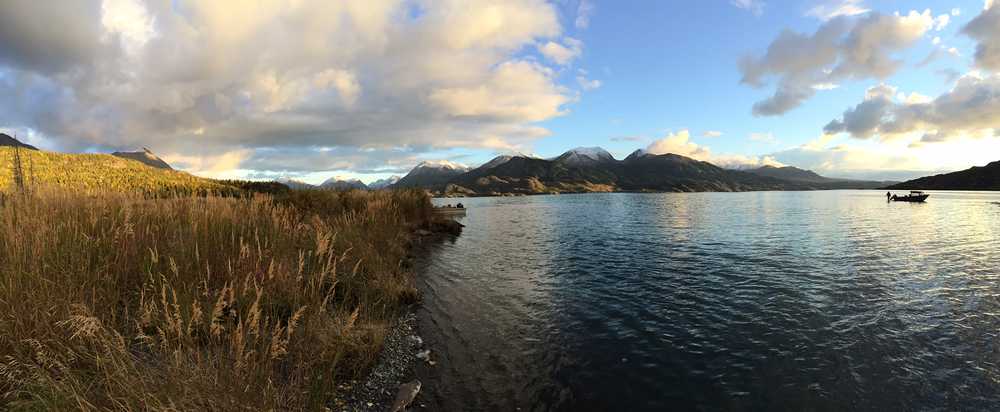A Texas man mauled by a brown bear near Skilak Lake Tuesday night is recovering at Central Peninsula Hospital from what troopers have called serious injuries.
Troopers say Gregory Matthews, 47, was out hunting moose when a brown bear with cubs attacked shortly after 6 p.m. near Doroshin Bay.
“Essentially, the victim was out with another hunter when he was mauled,” said Alaska State Troopers Public Information Officer Megan Peters in an email. “The bear turned on the second hunter, but that hunter was able to fire off some shots and the bears left. Another hunter came across them and called it in to us.”
LifeMed took Matthews to Central Peninsula Hospital after being called by Central Emergency Services, according to CES Captain Terry Bookey.
“We never actually made contact,” Bookey said. “LifeMed was able to fly and they contacted the patient.”
Investigators from the U.S. Fish and Wildlife Service, the Alaska Department of Fish and Game and the Kenai National Wildlife Refuge are out surveying the scene, said Division of Wildlife Conservation Information Officer Ken Marsh.
Marsh said Matthews was with his brother, Roger, when he encountered the bear. Roger Matthews shot at the bear twice with a high-powered rifle, so investigators are on the lookout for a carcass or blood trail, Marsh said.
The brothers were hunting about a mile from the Doroshin Bay Cabin at the time of the encounter, said Deputy Refuge Manager Steve Miller. It is unknown at this time whether they were staying in the cabin, camping nearby or simply passing through, he said. Investigators on the scene will make sure other campers and hunters are aware there was a bear attack, Miller said.
“They’ll be putting (signs) up at the Upper Skilak Boat Launch as well as Doroshin Cabin,” he said.
This is the third bear attack on the Kenai Peninsula in two months, the second to happen on the refuge this season. Miller said while these attacks mark an uptick of bear activity on the refuge, there is no evidence yet to suggest they are the result of a common problem.
“On the refuge anyway, we’ve gone two or three years without having any (attacks). To have now two in the refuge, it’s definitely a spike for us,” Miller said. “Each one of these seem to be incident-specific… I don’t see any common thread through any of these except, unfortunately, they happen.”
Marsh also said establishing connections and patterns when it comes to bear attacks is tricky.
“It’s really hard to say. It’s kind of like lightning striking in some ways,” he said.
As with lightning, certain areas can go years without any bear activity only to see multiple attacks the next season, he said.
“We have a lot of brown bears on the peninsula, a healthy population, and we have a lot of people out recreating on the peninsula,” Marsh said.
Investigators determined the last two bear attacks were defensive. In other words, the bears involved were startled, and took out what they perceived to be a threat, said Fish and Game Wildlife Biologist Cathie Harms in a previous interview with the Peninsula Clarion. Factors like ambient noise and how the bear is made aware to a person’s presence have an impact on how the bear will react, Harms said.
“Part of it depends on how much noise people make when they are walking,” she said.
Investigators will verify whether the bear that attacked Matthews did in fact have cubs with it, how old the possible cubs are and whether the bear needs to be euthanized if it is injured, Marsh said.
Reach Megan Pacer at megan.pacer@peninsulaclarion.com.

